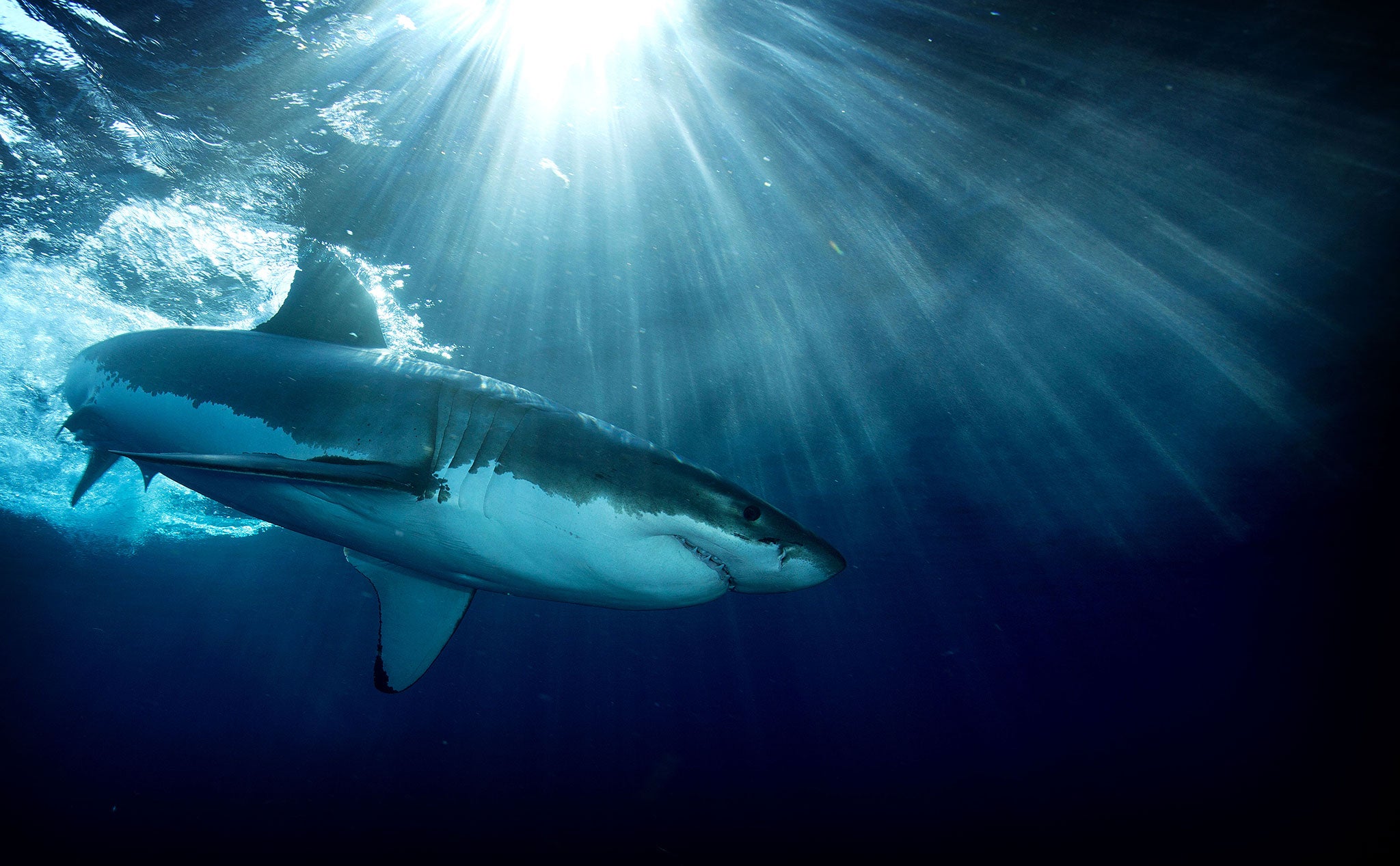Shark attacks are increasing because we are invading their territory – no wonder they are becoming more aggressive
Australia’s ‘shark mitigation strategy’, which includes fitting electronic tags to the animals, is like trying to stem a flood with a straw


The world beneath the waves is under threat – from pollution and over-fishing, from tourist developments, and now a new form of interference, the tagging of sharks so that surfers and swimmers can enjoy themselves.
I support sustainable fishing, although a photograph of a naked actress draped with a sea bass seems utterly wrong-headed even if their intentions are sound. Marine life provides us with delicious healthy food, but we are in danger of decimating its wealth and eliminating so many species with our greed.
As for pollution, the crap chucked overboard from boats pollutes every beach from the Outer Hebrides to islands of the Indian Ocean. Every day, in millionaire’s playgrounds like the Maldives, lowly-paid beach cleaners remove the detritus – washed up plastic bottles, food packaging, nylon twine and discarded sandals – to foster an illusion of pristine perfection.
Out of sight, coral reefs have been dynamited to make trendy jewellery and to make room for speculators to build vulgar waterside resorts.
I always hoped that humans would not be able to tame some of the ocean’s more feisty inhabitants; ever since Jaws, sharks have been saddled with a bad reputation that these magnificent creatures do not deserve. Sharks hunt to survive, and sometimes humans get in the way.

I’ve spent a lot of time in northern New South Wales, Australia, where you can walk for miles along empty beaches, with only the birds for company. I’ve fished river estuaries near Ballina and Tweed Heads, hauling out tasty flatheads and bream for supper and chucking back anything I’m not going to eat. In this area, sharks have always posed a relatively small danger to surfers and wading fishermen, but now their attacks seem to be more frequent: last year one person died and three were seriously injured.
The sharks are venturing closer inshore and are now clearly visible from popular beaches which can’t be netted. These attacks are hurting the tourism business, as thousands of people cancel their holidays for fear of danger in the water.
Now, one Australian local government has launched a “shark mitigation strategy”, which includes a warning system triggered when sharks fitted with electronic tags come within 500 metres of high tech buoys containing detection devices.
This is like trying to stem a flood with a straw. It’s impossible to tag every single shark, and now their behaviour seems to have got more aggressive as there are regular sighting of sharks actually tracking surfers right back to the beach. Isn’t there a message in here somewhere?
The ocean belongs to the sharks, not to surfers and swimmers. Is every popular beach (and not just in Australia) going to be blighted with sirens and flashing lights if a shark comes uncomfortably close to humans in the shallows?
It is we who are invading their territory – and surfers delude themselves if they think sharks will not retaliate.
So far, only 120 large sharks have been fitted with tags in an area hundreds of kilometres long. I would hate for sharks to be hunted, rounded up and tagged, all in the name of public safety. Such an action manipulates the natural behaviour of a wild creature.
Sharks are not pets – and they are not going to tolerate their space being invaded by a bunch of dudes on boards.
Join our commenting forum
Join thought-provoking conversations, follow other Independent readers and see their replies
Comments
Bookmark popover
Removed from bookmarks